Many people say they eat too much during the holidays. A survey by Ohio State University found that two-thirds of people overeat, and one-third drink more alcohol. The holidays often mean lots of food, making it hard to keep a balanced diet.
Dietitians say you can still enjoy holiday treats and stay balanced. It’s important to focus on healthy eating all year, especially during the holidays.
Studies show that cooking at home can help you stay healthy. It’s linked to a lower body mass index (BMI). Almost a quarter of the calories we eat are from snacks, research shows.
As we enjoy the healthy holiday eating, it’s key to eat mindfully. This way, we can still have fun while keeping our diet balanced.
Key Takeaways
- The holiday season brings unique nutritional challenges, with two-thirds of individuals admitting to food overindulgence and one-third consuming more alcohol.
- Cooking at home is linked to better overall health and lower BMI, compared to relying on pre-packaged or restaurant meals.
- Mindful indulgence and a balanced approach to holiday eating can help maintain health and well-being during the festivities.
- Staying hydrated, incorporating fiber-rich foods, and limiting high-sugar beverages are important strategies for healthy holiday eating.
- Developing a plan to navigate the nutrition roads of the holidays can set you up for success in the new year.
Understanding Holiday Nutrition Challenges
The holiday season is filled with joy and celebration. But it also brings a chance to overindulge. As we face the health: navigating the nutrition roads of the holidays, knowing common eating habits is key. These habits can affect our holiday weight management.
Common Holiday Eating Patterns
Many people snack more, eat bigger portions, and choose rich, high-calorie foods during the holidays. These changes can lead to weight gain and harm our health.
- Two-thirds of people report overindulging in food during the holidays.
- A third of individuals increase their alcohol consumption during the holiday season.
Impact on Health and Wellness
Holiday eating habits can have big effects. They can cause weight gain, disrupt sleep, and lead to other health issues. It’s crucial to make smart choices to keep our nutrition balanced and our health in check.
Statistical Overview of Holiday Indulgence
Research shows that staying hydrated can help control hunger and prevent overeating. Eating protein in every meal keeps you full longer. Planning meals and shopping lists ahead can also help stick to healthy eating.
“Building a positive mindset towards fitness and nutrition is essential during the holidays.”
By knowing the challenges and using smart strategies, we can handle the health: navigating the nutrition roads of the holidays. This way, we can keep our holiday weight management on track and support our overall health.
Smart Strategies for Holiday Meal Planning
As the holiday season comes, it’s key to plan your meals wisely. This way, you can keep your diet balanced. By choosing nutrient-dense foods and seasonal recipes, you can have fun while staying healthy.
Start by planning your meals ahead of time. This helps you eat a variety of nutrient-dense foods all day. It also stops you from eating too much at parties. Begin with a protein-rich breakfast to feel full and avoid snacks later.
At gatherings, bring a healthy dish to share. This way, you have good food choices. Pick seasonal recipes that are both fun and healthy, like roasted veggies or a fruit salad.
- Plan meals in advance to maintain a balanced diet
- Start the day with a protein-rich breakfast to promote satiety
- Bring a healthy dish to potlucks and parties
- Incorporate seasonal recipes that are both festive and nutritious
With these smart tips, you can have a great holiday season. You’ll stay healthy and enjoy every moment.
The Art of Mindful Holiday Eating
The holiday season is full of indulgence, from parties to big meals. But, you can enjoy these moments without losing your health. By using mindful eating and portion control, you can enjoy the holiday tastes while keeping your health in mind.
Practicing Portion Control
Being mindful of your portions is key during the holidays. Use smaller plates and take smaller amounts at buffets. This helps you avoid eating too much and feeling bloated. Also, listen to your body’s hunger and fullness signals. Stop eating when you’re just satisfied, not stuffed.
Mindful Eating Techniques
Take your time and enjoy each bite. Notice the smells, textures, and tastes of your food. This makes your meal more enjoyable and helps you stay in tune with your hunger. Don’t eat while chatting or watching TV, as this can lead to eating too much.
Managing Social Pressure
Holiday meals can make you feel pressured to eat more. To handle this, stay away from the food table when you can. Also, say no to more food if you’re already full. The holiday spirit is about connection, not just food.
By being mindful of your holiday eating, you can enjoy the season without losing your health. With a bit of practice, you can handle the portion control and mindful indulgence of the holidays with ease and happiness.
Health: Navigating the Nutrition Roads of the Holidays
As the holiday season comes, it’s key to focus on health while enjoying the fun. Eating a balanced diet all season, not just on special days, makes healthy holiday eating easier.
The holidays are about the people, not just the food. Yet, many find it hard to stick to their usual diet and exercise. Over 50% of people face these challenges.
Feeling guilty after eating too much is common, with 60% of people feeling this way. Almost 40% get anxious or stressed about holiday meals and gatherings.
Having a plan is vital to stay healthy during the holidays. Studies show a strategy boosts your chances of keeping a balance.
“The key is to approach the holidays with a mindset of moderation and balance, rather than deprivation or overindulgence.”
Practices like gratitude and meditation can help reduce stress. They keep you focused on the holiday’s true spirit. The holidays are for enjoying time with loved ones, not just the food.
- Aim for 20-30g of protein five times a day.
- Make half your plate vegetables for a healthy mix.
- Drink at least 8 oz of water before meals to stay hydrated.
By being mindful of holiday eating and focusing on well-being, you can enjoy the season fully. Navigating the nutrition roads of the holidays becomes easier.
Creating Balance with Holiday Traditions
The holiday season is a time of indulgence, filled with traditional recipes and gatherings. Yet, you can enjoy these flavors while staying healthy. By making smart seasonal recipe changes, you can enjoy familiar tastes without harming your health.
Healthy Recipe Modifications
Nutrition expert Penny Kris-Etherton says most recipes can be healthier by cutting fat, sugar, and salt by a third. Simple changes like almond flour for wheat flour or plant-based milk can make dishes better. For example, turkey breast is lean and can be the main dish at Thanksgiving.
Sweet potatoes are full of vitamins and can be roasted with spices for a healthier version. This way, you can enjoy them without the extra butter and marshmallows.
Alternative Celebration Ideas
While food is key at holiday gatherings, there are other ways to make memories. Try non-food gifts and activities like game nights, DIY crafting, or outdoor adventures. These ideas can help balance the focus away from too much holiday eating.
By using these strategies, you can enjoy holiday flavors while staying balanced. A bit of creativity and focus on well-being can help you celebrate without harming your health.
Smart Snacking Strategies During Festivities
The holiday season is here, and it’s tempting to indulge in treats. But, choosing nutrient-dense foods can keep you healthy. Here are some tips for smart holiday snacking.
Controlling your portions is crucial. Harvard Health says eating smaller meals keeps energy up and prevents overeating. The Cleveland Clinic also warns against sugary drinks, as they add calories without filling you up.
Choose nutrient-dense foods like fruits, veggies, nuts, and seeds for snacks. The British Heart Foundation suggests drinking 6–8 cups of water daily. This helps avoid mindless snacking and keeps you energized.
For quick energy, try energy bars made with wholesome ingredients. Kate’s Real Food offers organic bars with a good mix of carbs, protein, and fats. They’re great for winter activities or when meals are hard to find during travel.
By being mindful of portion control and picking nutrient-dense foods for snacks, you can enjoy the holidays healthily. A bit of planning and smart choices make it easy to handle the season’s treats.
“Staying hydrated is key for good health, suggesting to aim to drink at least 6–8 cups of water a day.”
Managing Alcohol Consumption During Celebrations
The holiday season brings more alcohol use, as people celebrate with friends and family. But too much drinking can harm our health. It’s key to know how alcohol affects us and to drink in dietary moderation to stay healthy.
Impact on Health and Sleep
Drinking too much can hurt our liver, raise cancer risk, and lead to depression and bad sleep. Studies show that once we hit our ‘tipping point’ with alcohol, we lose control. This can lead to eating more in the next 48 hours. Binge drinking during holidays can also cause weight gain and dehydration.
Moderation Guidelines
- Set a goal before a night out, such as limiting the number of drinks or opting for non-alcoholic alternatives.
- Have a balanced, filling meal before drinking to reduce poor food choices later in the evening.
- Choose long drinks with less concentrated alcohol content to help manage consumption levels.
- Stay hydrated by alternating between alcoholic drinks and water to aid in reducing dehydration and potential hangover severity.
- Experiment with non-alcoholic cocktails to enjoy the festive atmosphere without excess calories from alcohol.
Practicing dietary moderation and being aware of alcohol use can keep us healthy during holidays. Knowing our triggers and finding ways to control stress eating and drinking helps us enjoy the season without harming our health.
Communication and Dietary Restrictions
As we navigate the health: navigating the nutrition roads of the holidays, talking about dietary restrictions is key. It makes sure everyone has a good time. Whether you’re hosting or going to a holiday party, it’s important to talk about food needs.
Studies show that 78% of individuals with dietary restrictions find it challenging to navigate holiday meals. Also, 65% of people with dietary restrictions feel stressed or anxious about communicating their dietary needs. This can make guests feel uncomfortable, worried they’ll get a bad reaction.
- Talk about dietary restrictions or preferences with hosts early. This lets the host plan a menu that everyone can enjoy.
- If you’re the host, ask your guests about their dietary needs. Showing you care makes everyone feel welcome.
- Be clear and simple when explaining your dietary restrictions. Don’t assume others will get it. Explain it well to avoid confusion.
Being open and working together is the best way to handle holiday meals. By talking about dietary needs early, you make sure everyone has a great time.
“84% of respondents believe that improved communication about dietary restrictions would enhance holiday meal experiences.”
Remember, 68% of individuals reported feeling more included and appreciated when their dietary restrictions are respectfully acknowledged during holiday events. A bit of planning and thoughtfulness can make sure everyone enjoys the holiday.
| Statistic | Percentage |
|---|---|
| Individuals with dietary restrictions find it challenging to navigate holiday meals | 78% |
| People with dietary restrictions feel stressed or anxious about communicating their needs | 65% |
| Individuals with dietary restrictions have experienced negative reactions when discussing their needs | 42% |
| Individuals with dietary restrictions feel comfortable talking about their needs during holiday gatherings | 29% |
| Individuals with dietary restrictions wish for more accessible resources to communicate their needs | 56% |
| Respondents who believe improved communication would enhance holiday meal experiences | 84% |
| Individuals who feel more included when their dietary restrictions are acknowledged | 68% |
| People without dietary restrictions who struggle to accommodate guests’ needs | 37% |
Hosting Health-Conscious Holiday Gatherings
When we get together with loved ones during the holidays, it’s key to plan menus that fit everyone’s needs. Hosting gatherings that focus on health can make sure everyone feels included and enjoys the celebration.
Inclusive Menu Planning
Think about the different diets your guests might have when planning your holiday menu. Include a range of seasonal recipes and nutrient-dense foods that cater to various needs. This could be gluten-free, dairy-free, or vegan options. Make sure to label dishes with common allergens.
Setting up a buffet can help guests find what they can eat easily. This way, everyone can enjoy the feast without worry.
Accommodating Special Diets
- Talk to your guests before the event to know their dietary needs or preferences.
- Make dishes that naturally avoid common allergens, like nuts, gluten, or dairy.
- Use ingredient swaps, like almond flour or plant-based milk, to make traditional dishes more inclusive.
- Label each dish with its ingredients and any allergens to help guests choose wisely.
- Set up a buffet with clear labels to help guests navigate the menu.
By planning an inclusive menu and catering to special diets, you can make your holiday gathering welcoming and fun for everyone.
“Bringing a healthy dish to a party can ensure having at least one nutritious option to enjoy.”
Post-Holiday Meal Recovery Strategies
The holiday season can make us feel sluggish and want to eat healthier. But, with the right steps, you can get back to feeling good after the holidays.
Going for a brisk walk after big meals helps digestion and blood sugar. It also stops you from feeling sick for too long. Plus, sending leftovers home with guests helps you avoid eating too much.
Getting back to your usual eating habits quickly is key. Eat foods rich in nutrients like fruits, veggies, whole grains, and lean proteins. Drinking more water also helps your body recover and stay healthy.
Using these strategies can help you stay on a balanced diet after the holidays. This way, you can manage your weight and feel refreshed for the new year.
| Strategy | Benefit |
|---|---|
| Take a post-meal walk | Aids digestion and regulates blood sugar levels |
| Send leftovers home with guests | Avoids prolonged indulgence |
| Return to regular eating patterns | Supports recovery and balanced nutrition |
| Focus on nutrient-dense foods | Replenishes the body’s nutrient stores |
| Increase water intake | Promotes overall health and recovery |
By taking these easy steps, you can help your body bounce back from holiday eating. This sets you up for a healthier new year.
Maintaining Physical Activity During Holidays
The festive season brings indulgent meals and social gatherings. It also means a slowdown in our fitness routines. Yet, staying active during holidays is key for managing stress and health. It helps balance the extra calories from holiday treats.
Family-Friendly Exercise Ideas
Adding physical activity to your holiday plans can be fun. Try organizing neighborhood walks or visiting local parks for family fun. Games like tag, frisbee, or touch football can make everyone active and happy.
Incorporating Movement into Celebrations
Find ways to weave fitness into your holiday traditions. Take a post-meal stroll to aid digestion and enjoy the festive vibe. Organize holiday-themed fitness challenges or group workout sessions for fun, active bonding.
Even short, efficient workouts can support your health during the holiday rush. Prioritize your fitness, celebrate small victories, and find creative ways to stay active with your loved ones.
| Exercise Idea | Benefits |
|---|---|
| High-Intensity Interval Training (HIIT) | 20-30 minute HIIT sessions can provide an effective cardio and strength workout, even with limited time. |
| Express Fitness Classes | Fitness CF gyms offer express classes designed for individuals with limited time, ensuring maximum impact in shorter durations. |
| Incorporating Fitness into Activities | Setting step goals or organizing family fitness days can enhance physical activity during the holidays. |
| Scheduling Workouts | Planning and scheduling workouts, like appointments, can help in maintaining consistency amid holiday events. |
Stress Management and Emotional Eating
The holiday season is filled with joy and quality time with loved ones. But it can also be stressful. This stress often leads to stress eating. It’s important to understand how holiday stress and emotional eating are linked to keep a healthy diet during this time.
Stress can greatly affect our eating habits. A study by Mental Health America found that negative self-talk can lead to more negative emotions and behaviors under stress. Substance use, like drugs and alcohol, can also worsen depression and anxiety, causing changes in appetite and eating.
To avoid stress eating, finding non-food coping strategies is key. Mindfulness, such as meditation or deep breathing, can help manage stress. Taking care of yourself, like getting enough sleep and exercising, can also reduce stress and prevent overeating.
“Practicing gratitude and self-care activities, such as reading, meditating, playing games, or taking baths, can help reduce stress and enhance feelings of well-being during the holidays for those managing eating disorders.”
By recognizing stress signs and using healthy coping methods, you can enjoy the holidays more mindfully. This way, you can celebrate without harming your health. Remember, taking care of your mental and physical health is crucial during this busy and joyful time.
Preparing Healthy Holiday Dishes at Home
As the holiday season comes, many of us look forward to spending time with loved ones. We also enjoy festive dishes. But, it can be hard to stay healthy during these times. The good news is you can enjoy holiday flavors and stay healthy with some smart ideas.
Nutritious Recipe Alternatives
Try seasonal recipes with nutrient-dense foods instead of heavy dishes. Use unsweetened applesauce or ripe bananas for butter to cut sugar by 50%. Spices like cinnamon and nutmeg add flavor without extra calories.
Swap full-fat dairy for lighter options. Use non-fat Greek yogurt instead of sour cream and reduced-fat mayonnaise instead of regular. These changes can greatly improve your dishes’ nutrition.
Kitchen Organization Tips
- Plan your menu and grocery list early to have all the right nutrient-dense ingredients.
- Make healthier snacks and sides like roasted veggies or hummus ahead of time. This way, they’re ready when you need them.
- Keep your kitchen organized for better efficiency. Have your essential tools and healthy foods within reach.
- Use smaller plates and servings to control portions and avoid overeating.
Preparing nutritious holiday dishes at home lets you enjoy the season’s flavors while staying healthy. With a bit of creativity and planning, you can find the right balance between enjoying food and eating mindfully.
Conclusion
As we enjoy the holiday season, finding a balance between fun and healthy eating is key. The numbers show how different people of all ages and health levels are affected. This highlights the importance of making smart choices during holidays.
Some adults might gain weight, but with the right approach, it can be lessened. For college students and kids, the effects are smaller. This shows the value of sticking to healthy habits all year round.
To have a great holiday season, plan ahead, be mindful, and find a balance. Focus on spending time with loved ones, celebrating, and eating in moderation. Remember, one special meal won’t ruin your health goals. It’s the everyday choices that truly matter.


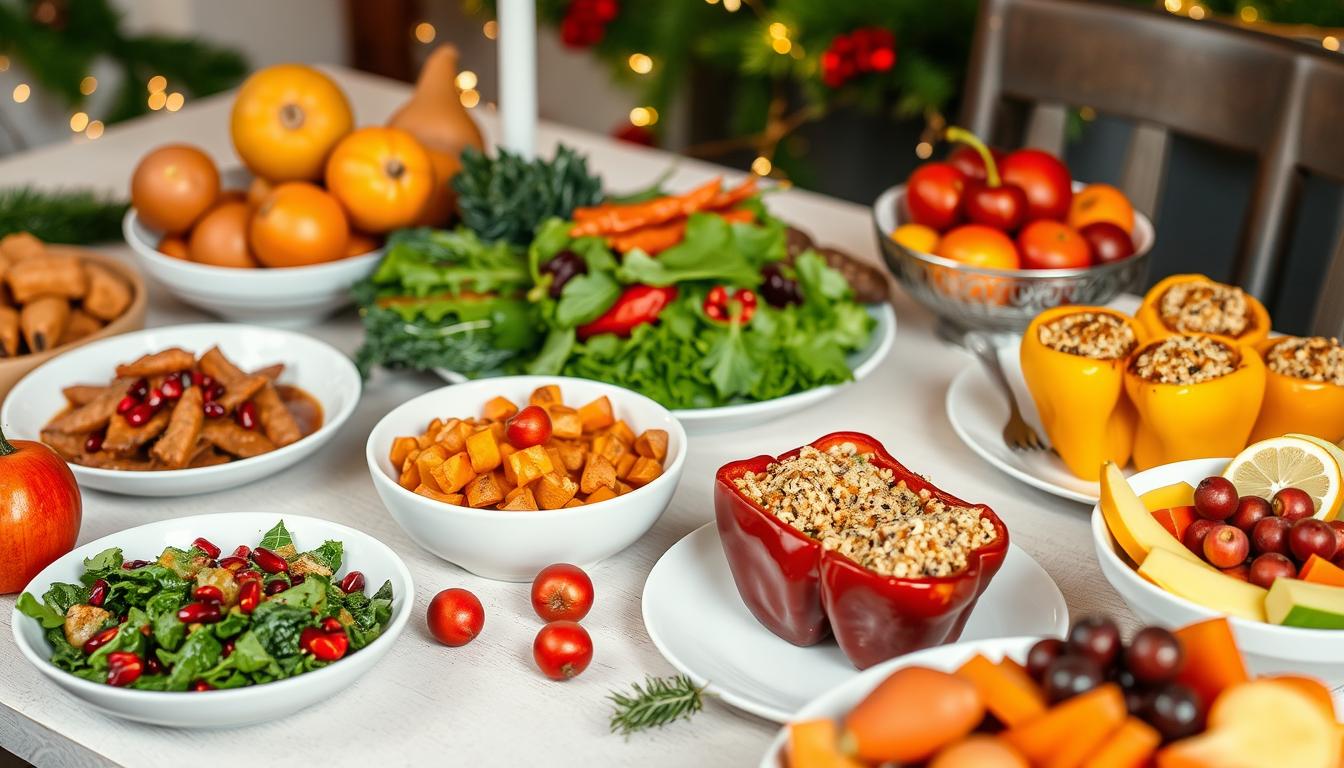
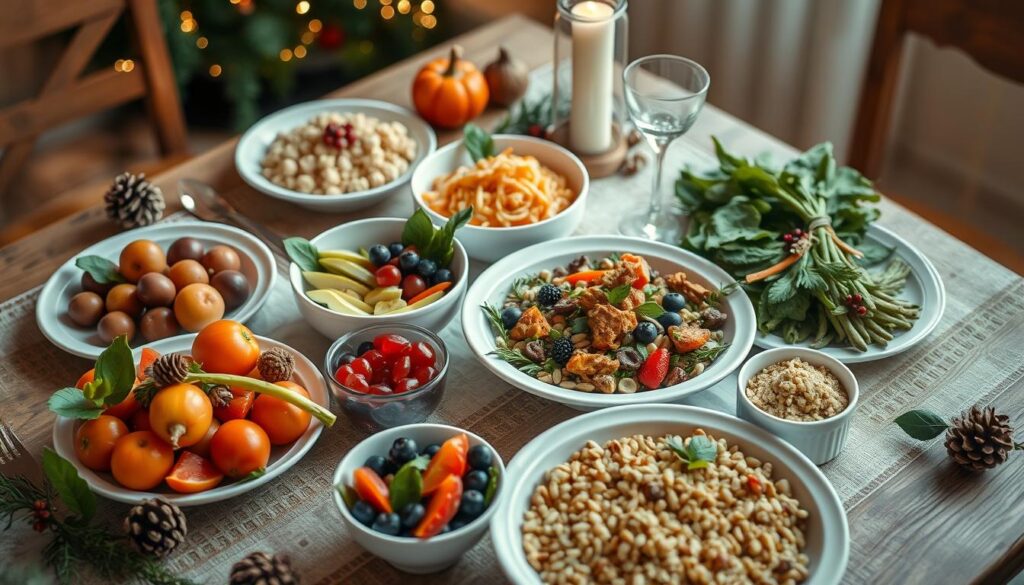
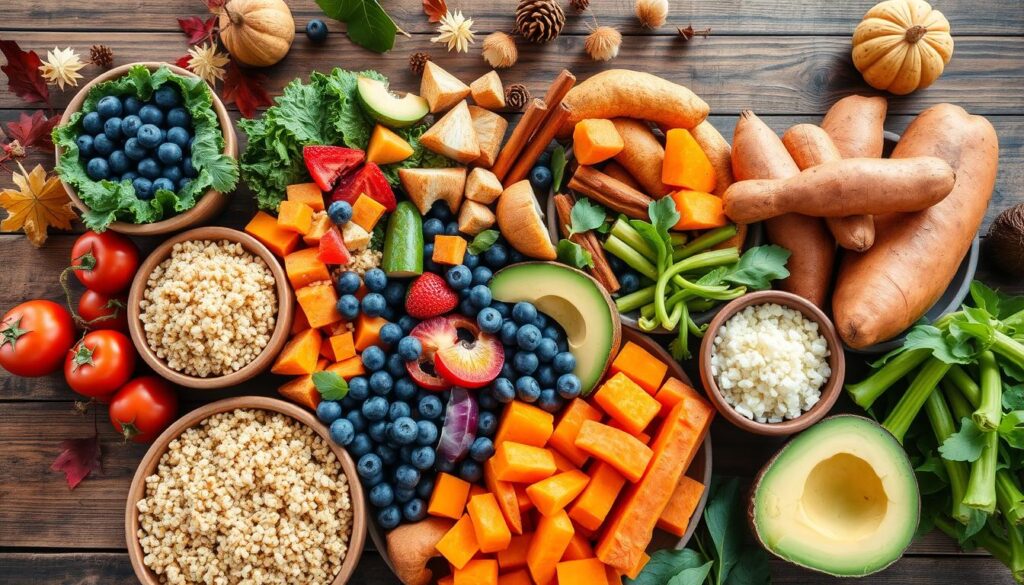
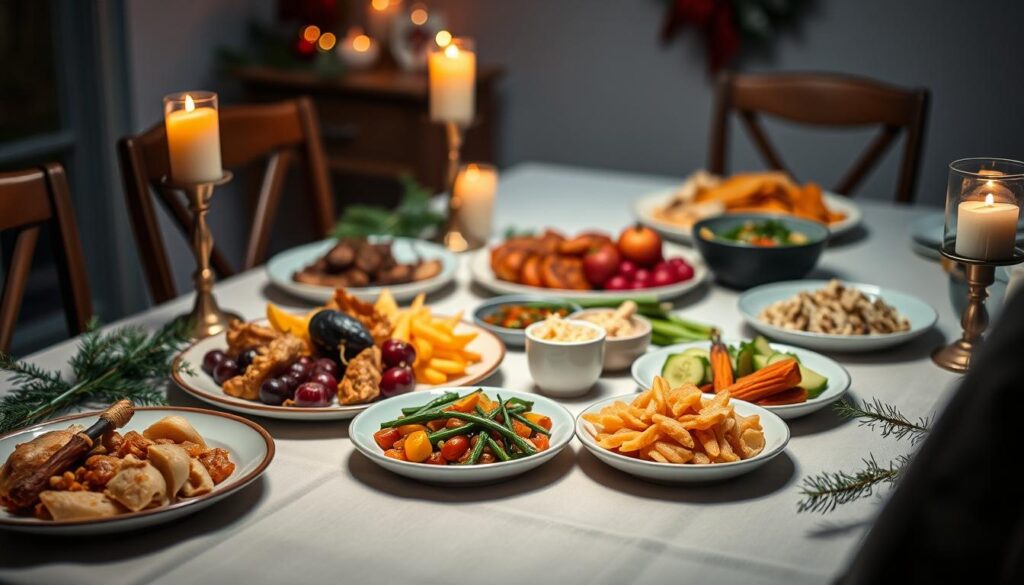
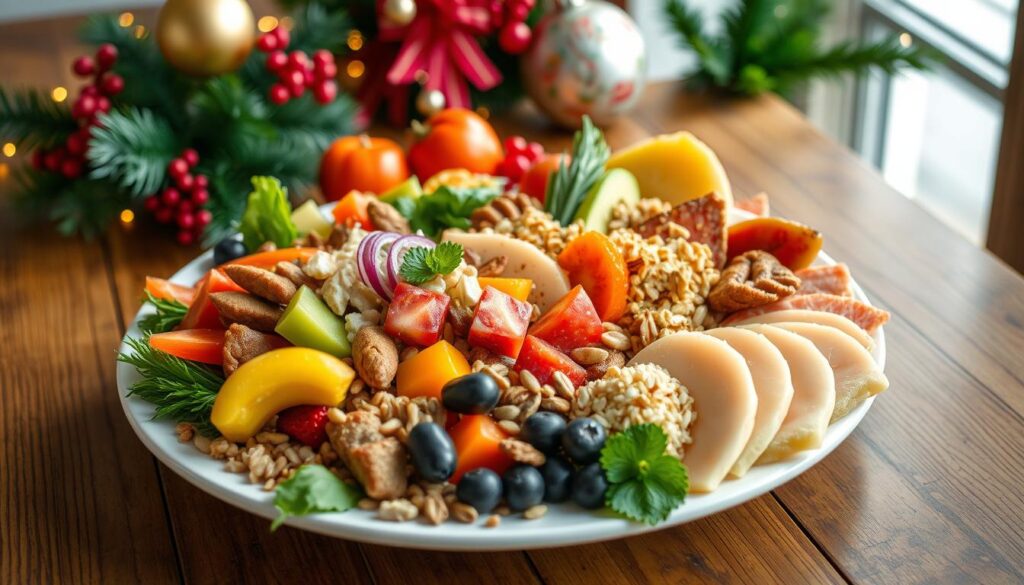
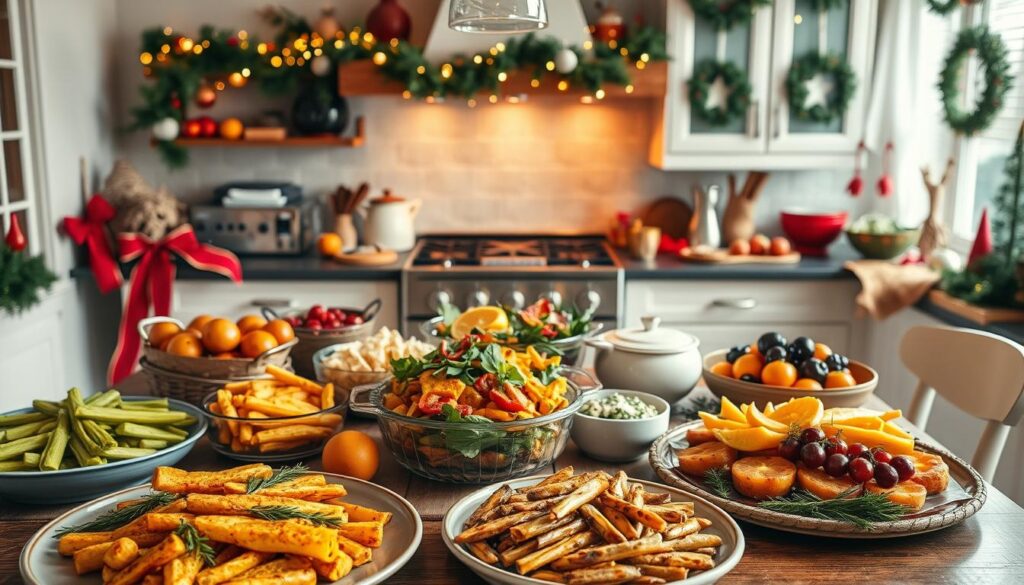
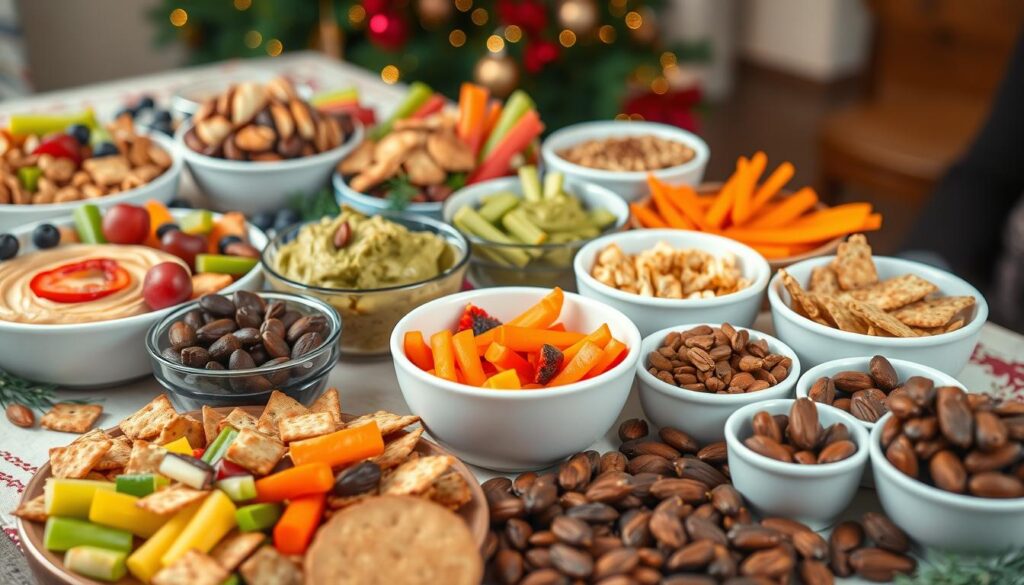


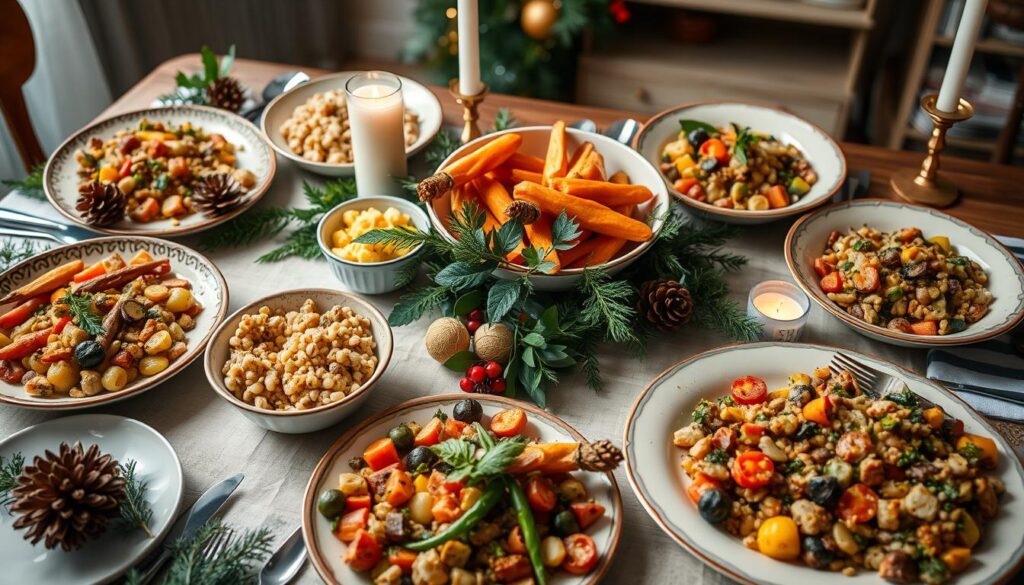
Все услуги для успешного проекта в одном месте Hello Chef